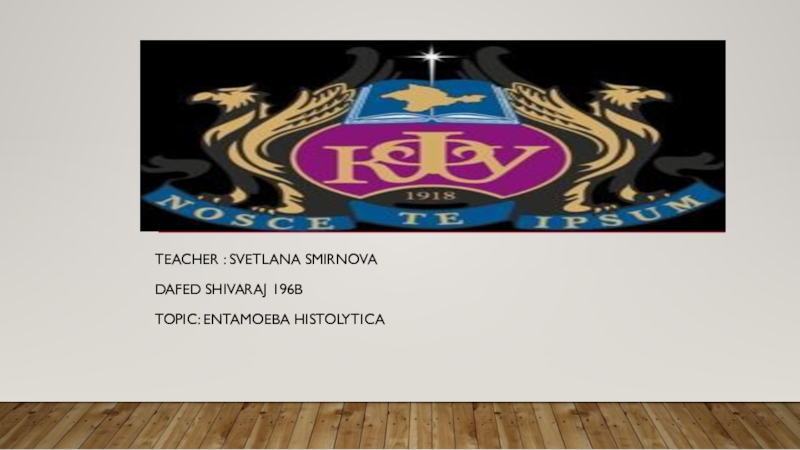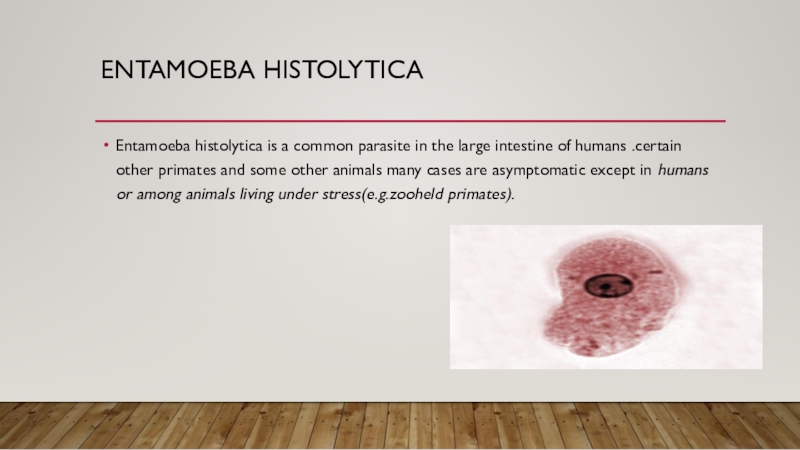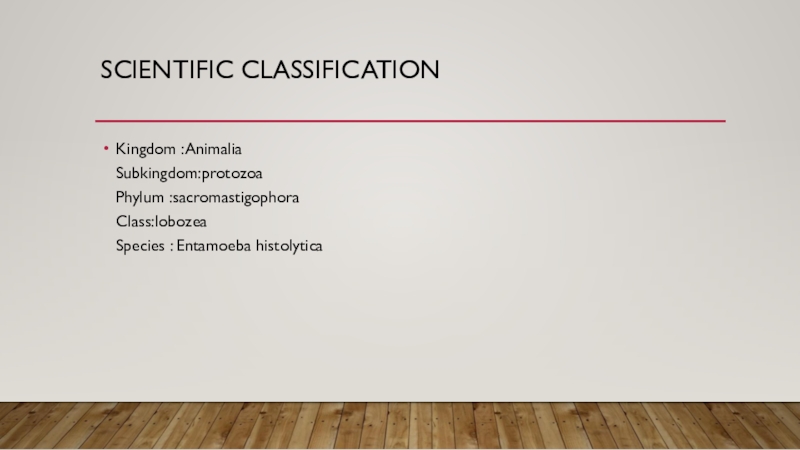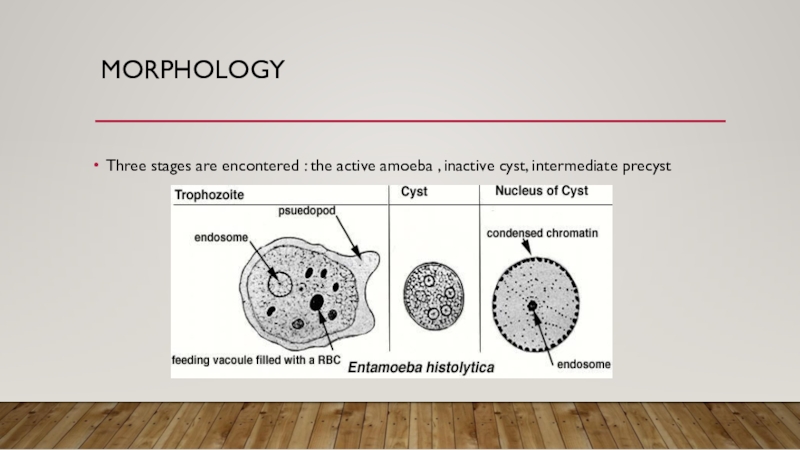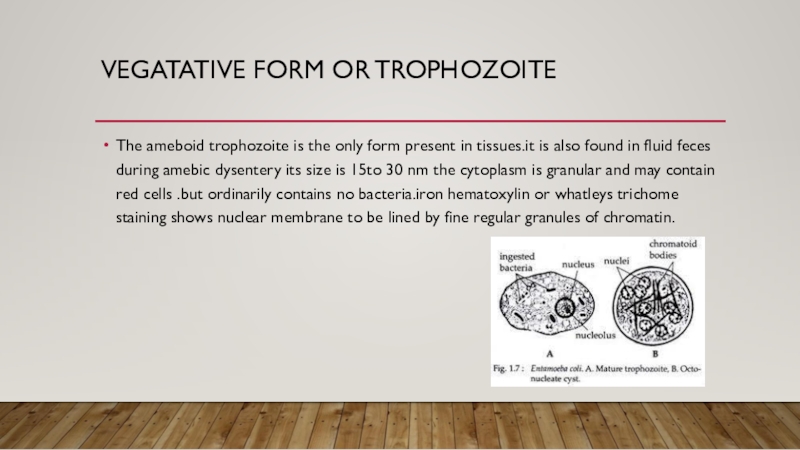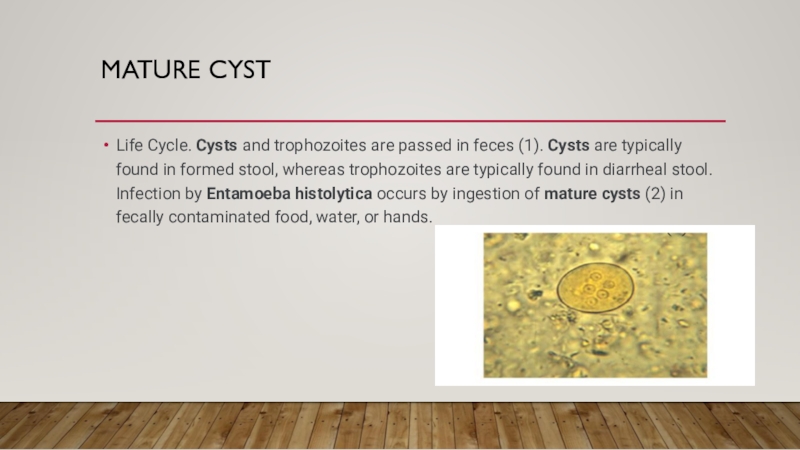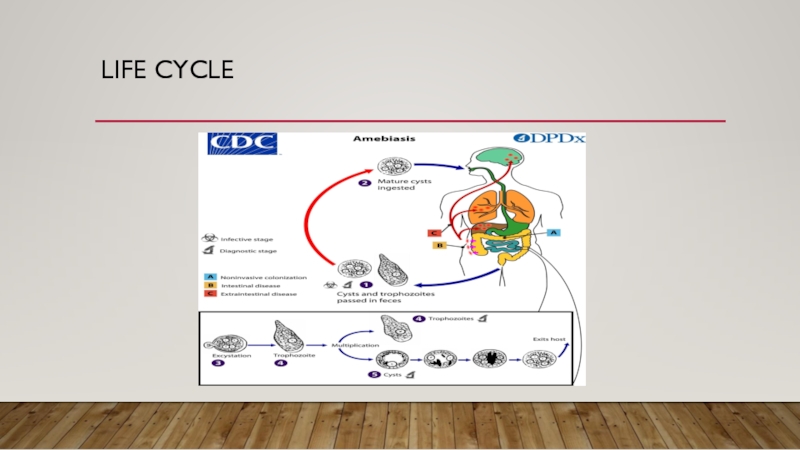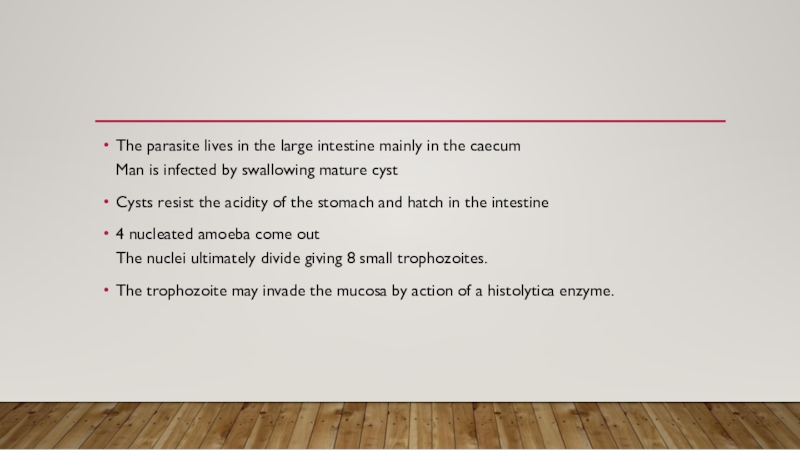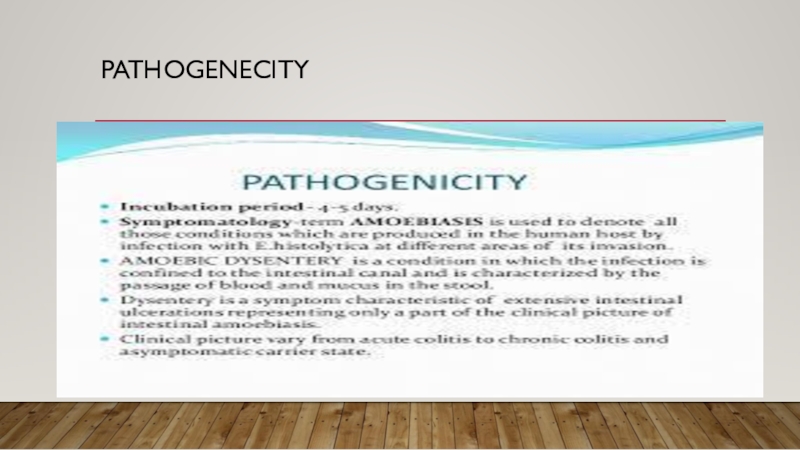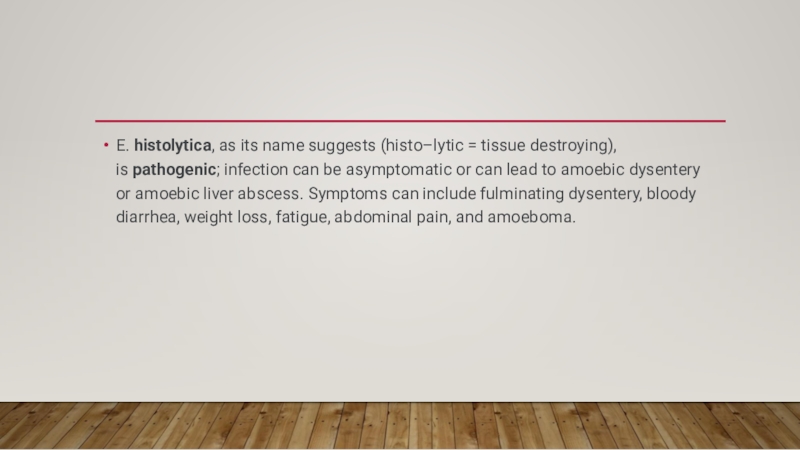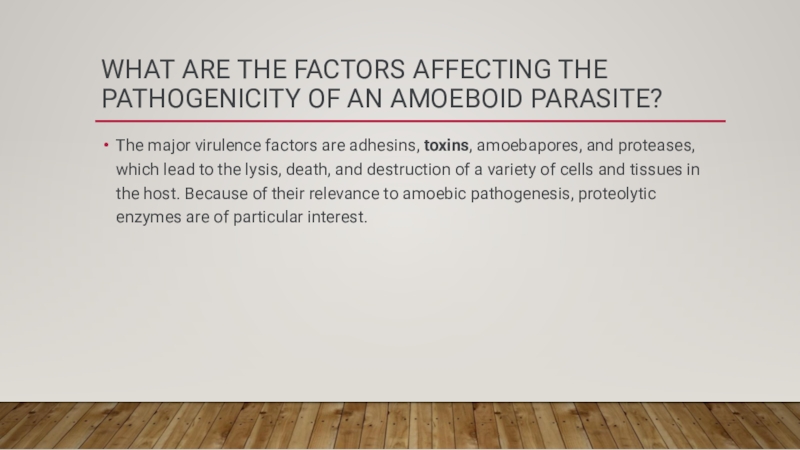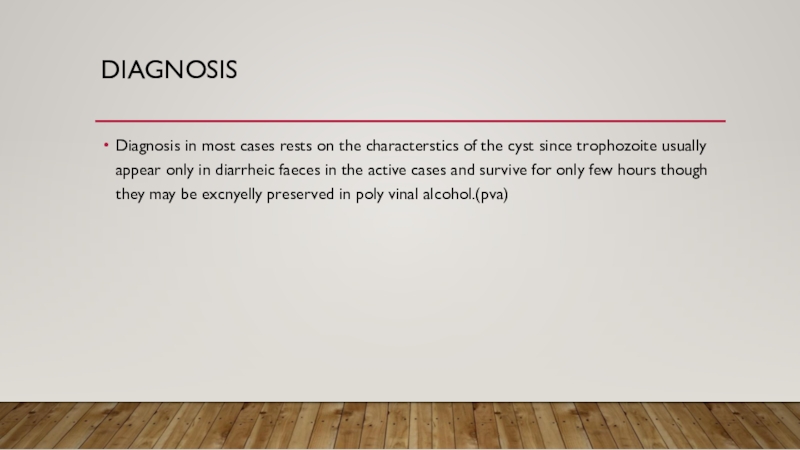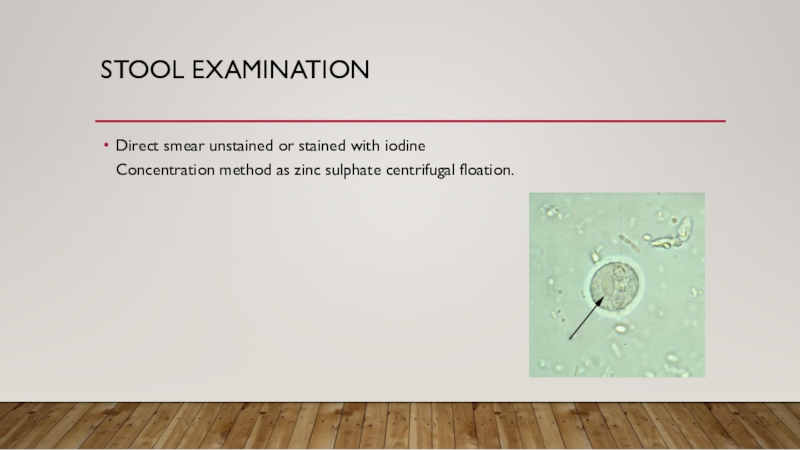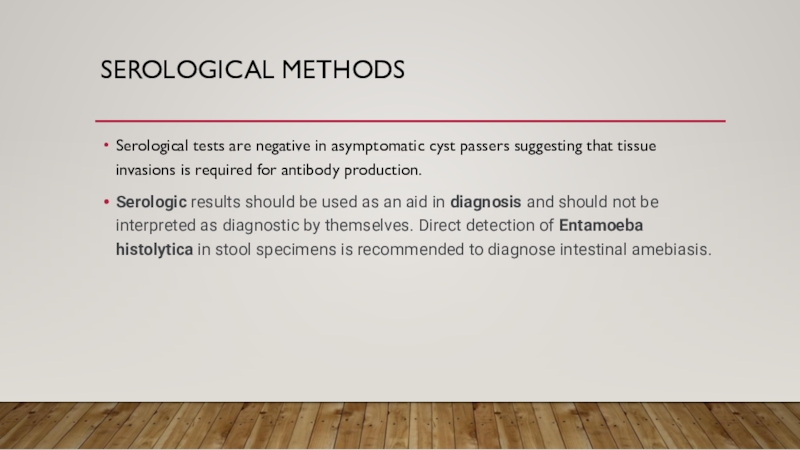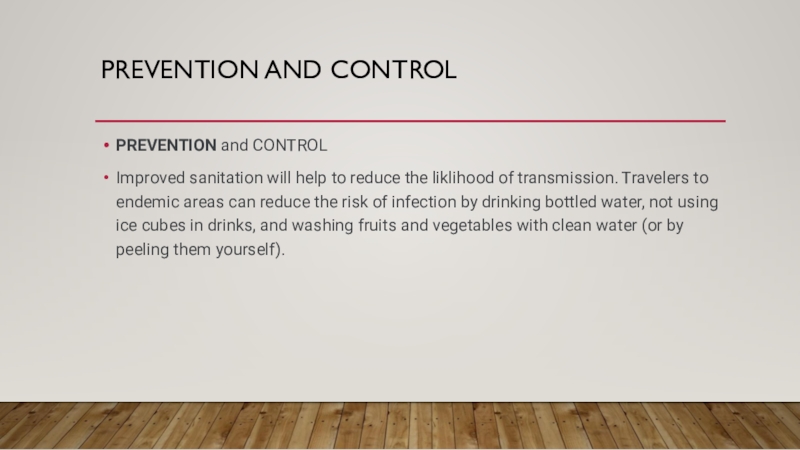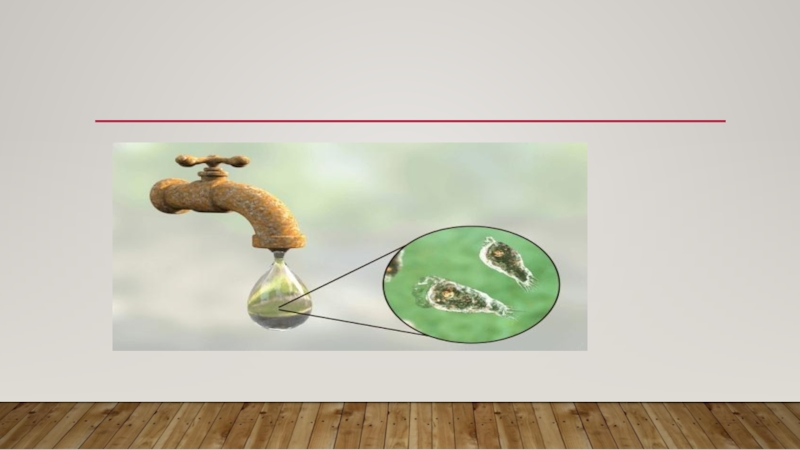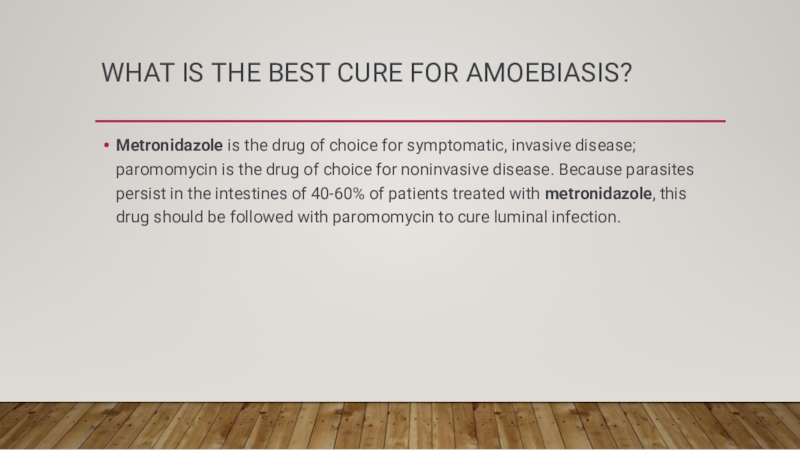Разделы презентаций
- Разное
- Английский язык
- Астрономия
- Алгебра
- Биология
- География
- Геометрия
- Детские презентации
- Информатика
- История
- Литература
- Математика
- Медицина
- Менеджмент
- Музыка
- МХК
- Немецкий язык
- ОБЖ
- Обществознание
- Окружающий мир
- Педагогика
- Русский язык
- Технология
- Физика
- Философия
- Химия
- Шаблоны, картинки для презентаций
- Экология
- Экономика
- Юриспруденция
Teacher : Svetlana smirnova Dafed shivaraj 196b Topic: entamoeba histolytica
Содержание
- 1. Teacher : Svetlana smirnova Dafed shivaraj 196b Topic: entamoeba histolytica
- 2. Entamoeba histolyticaEntamoeba histolytica is a common parasite
- 3. Scientific classificationKingdom :Animalia Subkingdom:protozoa Phylum :sacromastigophora Class:lobozea Species : Entamoeba histolytica
- 4. Geographical distributionCosmopolitan
- 5. MorphologyThree stages are encontered : the active amoeba , inactive cyst, intermediate precyst
- 6. Vegatative form or trophozoiteThe ameboid trophozoite is
- 7. Mature cystLife Cycle. Cysts and trophozoites are passed in
- 8. Life cycle
- 9. The parasite lives in the large intestine
- 10. Pathogenecity
- 11. E. histolytica, as its name suggests (histo–lytic =
- 12. What are the factors affecting the pathogenicity
- 13. Diagnosis
- 14. DiagnosisDiagnosis in most cases rests on the
- 15. Stool examinationDirect smear unstained or stained with iodine Concentration method as zinc sulphate centrifugal floation.
- 16. Serological methods Serological tests are negative in
- 17. Prevention and control PREVENTION and CONTROLImproved sanitation will help
- 18. Слайд 18
- 19. What is the best cure for Amoebiasis?Metronidazole is
- 20. Слайд 20
- 21. Скачать презентанцию
Entamoeba histolyticaEntamoeba histolytica is a common parasite in the large intestine of humans .certain other primates and some other animals many cases are asymptomatic except in humans or among animals living
Слайды и текст этой презентации
Слайд 3Scientific classification
Kingdom :Animalia
Subkingdom:protozoa
Phylum :sacromastigophora
Class:lobozea
Species : Entamoeba histolytica
Слайд 5Morphology
Three stages are encontered : the active amoeba , inactive
cyst, intermediate precyst
Слайд 6Vegatative form or trophozoite
The ameboid trophozoite is the only form
present in tissues.it is also found in fluid feces during
amebic dysentery its size is 15to 30 nm the cytoplasm is granular and may contain red cells .but ordinarily contains no bacteria.iron hematoxylin or whatleys trichome staining shows nuclear membrane to be lined by fine regular granules of chromatin.Слайд 7Mature cyst
Life Cycle. Cysts and trophozoites are passed in feces (1). Cysts are typically
found in formed stool, whereas trophozoites are typically found in
diarrheal stool. Infection by Entamoeba histolytica occurs by ingestion of mature cysts (2) in fecally contaminated food, water, or hands.Слайд 9The parasite lives in the large intestine mainly in the
caecum
Man is infected by swallowing mature cyst
Cysts resist the acidity
of the stomach and hatch in the intestine4 nucleated amoeba come out The nuclei ultimately divide giving 8 small trophozoites.
The trophozoite may invade the mucosa by action of a histolytica enzyme.
